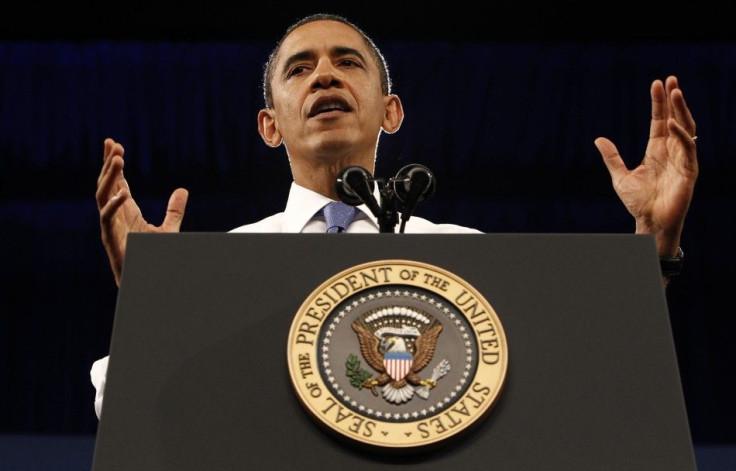Gas Prices: Obama Slams Republicans, Defends Energy Policy

President Barack Obama is seeking to assuage Americans' anxiety over rising gas prices, defending his administration's energy policy as more robust than those offered by his would-be Republican challengers.
Keenly aware of how climbing prices at the pump could affect his re-election prospects, Obama on Thursday took on Republican candidates who he said are disengenuously promising lower gas prices and using the issue to score political points. Only in politics, he said, do they greet bad news so enthusiastically.
You can bet that since it's an election year, they're already dusting off their three-point plans for $2 gas, Obama said. I'll save you the suspense. Step one is drill, step two is drill, and step three is keep drilling.
Sure enough, Rep. Michele Bachmann (R-Minn.) promised during her since-ended presidential campaign to lower gas prices to $2 a gallon. At Wednesday night's Republican presidential debate in Arizona, Newt Gingrich vowed to bring about $2.50-a-gallon gas if elected, reprising a theme of the 2008 election -- when vice presidential candidate Sarah Palin energized crowds with chants of Drill, baby, drill! -- with a plan the former House speaker called Drill here, drill now.
'Drill, Baby Drill' Won't Solve U.S. Energy Problem
Obama said such single-minded focus on drilling won't be enough to curtail gas prices.
You know there are no quick fixes to this problem, and you know we can't just drill our way to lower prices.
Instead, the president advocated what he dubbed an all of the above energy policy that would combine oil and gas with developing alternative forms of energy, such as wind and solar, and focusing on vehicle efficiency.
The president has already made expanded natural gas drilling a focus of his energy policy, saying the vast reserves of gas trapped in underground formations throughout the country represent a boon to the domestic energy industry. While natural gas burns more cleanly than coal, the technique for extracting it -- a process known as hydraulic fracturing, or fracking, in which a mix of sand, water and chemicals is blasted deep underground -- has raised concerns about environmental damage and public health.
Obama also noted in Miami that the United States is generating more oil than at any time in the past eight years. Republicans attacked him for making the same point in his most recent State of the Union address, saying he was taking credit for policies enacted by his predecessor.
The United States has made considerable progress in reducing its reliance on foreign oil. Imports accounted for 49 percent of total U.S. liquid fuel consumption in 2010, down from 60 percent in 2005, and the Energy Information Administration anticipates the share dropping to 36 percent by 2035.
--
© Copyright IBTimes 2024. All rights reserved.




















